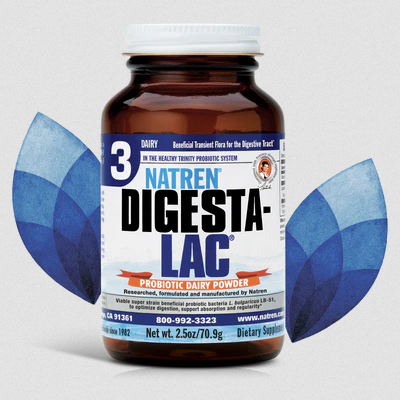Bloating, a familiar yet distressing digestive issue, affects countless individuals worldwide. Characterized by an uncomfortable feeling of fullness and swelling in the abdomen, bloating can stem from various factors, including diet, lifestyle, and underlying health conditions. Amidst the many available remedies, probiotics have gained significant attention for their potential to alleviate this discomfort. By understanding the mechanisms of probiotics for bloating and their impact on gut health, individuals can explore effective strategies to banish bloating and enhance overall digestive wellness.
Understanding Bloating: Causes and Symptoms
Bloating is not merely an inconvenience but a symptom often signals underlying digestive disturbances. The sensation of fullness can occur due to the accumulation of gas, fluid retention, or even the presence of food in the digestive tract. Common causes include overeating, consuming gas-producing foods, food intolerances, and gastrointestinal disorders such as irritable bowel syndrome (IBS). Stress and anxiety can also exacerbate bloating, disrupting normal digestive processes.
Individuals experiencing bloating may encounter a range of symptoms, including abdominal cramps, excessive gas, and a visibly distended abdomen. These symptoms can lead to considerable discomfort, affecting daily activities and overall quality of life. Understanding the root causes of bloating is essential for developing effective strategies to manage and alleviate this condition.
The Role of Probiotics in Digestive Health
Probiotics are live microorganisms that confer health benefits to the host when consumed adequately. These beneficial bacteria are pivotal in maintaining a balanced gut microbiome, essential for optimal digestive function. An imbalance in the gut microbiota, known as dysbiosis, can contribute to various digestive issues, including bloating. By restoring this balance, probiotics can help alleviate symptoms associated with bloating.
One of the primary ways probiotics aid digestion is by enhancing the breakdown of food. They assist in fermenting carbohydrates, which can lead to the production of gases. However, beneficial strains of probiotics, such as Lactobacillus and Bifidobacterium, can help reduce the production of harmful gases while promoting the growth of beneficial short-chain fatty acids (SCFAs). SCFAs support gut health and may even help regulate bowel movements.
Additionally, probiotics can strengthen the gut barrier, preventing the entry of harmful substances that may trigger inflammation and bloating. A healthy gut lining is crucial for proper nutrient absorption and can help mitigate symptoms associated with food intolerances, often linked to bloating. By enhancing the overall health of the gastrointestinal tract, probiotics can effectively reduce the frequency and severity of bloating episodes.
Specific Probiotic Strains for Bloating Relief
The effectiveness of probiotics in alleviating bloating can vary depending on the specific strains used. Certain strains have been extensively studied for their potential benefits in managing digestive discomfort. For instance, Lactobacillus plantarum has demonstrated promising results in reducing bloating and gas production. Research indicates this strain can help break down complex carbohydrates often responsible for gas formation.
Another beneficial strain is Bifidobacterium lactis, which has been shown to improve gut motility and alleviate symptoms of IBS, including bloating. This strain can enhance the digestive process, ensuring that food is broken down efficiently and minimizing the likelihood of gas accumulation.
Moreover, Saccharomyces boulardii, a beneficial yeast, has positively impacted gut health. It can help restore the natural balance of the gut microbiota, particularly after antibiotic use, which can disrupt the delicate ecosystem of gut bacteria. By promoting a healthy microbiome, this yeast can further contribute to reducing bloating and supporting overall digestive wellness.
Incorporating Probiotics into Daily Life
Incorporating probiotics into one’s daily routine can be enjoyable and beneficial for alleviating bloating. Fermented foods are excellent sources of probiotics and can be easily added to meals. Yogurt, kefir, sauerkraut, kimchi, and miso are all rich in beneficial bacteria. These foods enhance flavor and provide a variety of nutrients that support overall health.
Probiotic supplements offer a convenient alternative for individuals who may not consume enough fermented foods. When selecting a supplement, it is essential to choose high-quality products that contain well-researched strains and appropriate dosages. Consulting with a healthcare professional can help individuals identify the most suitable options for their specific digestive needs.
While probiotics can be beneficial, it is essential to approach their use mindfully. Gradually introducing probiotics into the diet can help the body adjust, minimizing the risk of gastrointestinal discomfort when starting probiotics too quickly. Additionally, individuals should consider their diet as a whole; consuming a balanced diet rich in fiber can further support gut health and enhance the effectiveness of probiotics.
Lifestyle Factors That Influence Bloating
In addition to incorporating probiotics, addressing lifestyle factors is crucial for effectively managing bloating. Eating habits, for instance, play a significant role in digestive health. Eating slowly and chewing food thoroughly can aid digestion and reduce the amount of air swallowed, which can contribute to bloating.
Staying hydrated is another essential aspect of digestive wellness. Adequate water intake can help facilitate digestion and prevent constipation, which can exacerbate bloating. Regular physical activity can also promote gut motility and reduce feelings of fullness and discomfort.
Furthermore, managing stress is vital for maintaining a healthy digestive system. Stress can disrupt normal digestive function, leading to symptoms such as bloating and discomfort. Relaxation techniques, such as yoga, meditation, or deep breathing exercises, can help alleviate stress and promote better digestive health.
Bloating can be an uncomfortable and disruptive experience, but incorporating probiotics offers a promising avenue for relief. By understanding the mechanisms of probiotics and their role in promoting gut health, individuals can take proactive steps toward managing bloating and enhancing overall digestive wellness. With the right combination of dietary choices, supplements, and lifestyle adjustments, it is possible to banish bloating and enjoy a more comfortable, vibrant life.




